Related Research Articles
19 was a Japanese pop/folk duo of Kenji Okahira and Keigo Iwase. It debuted in 1998 and broke up in March 2002. They had multiple albums and singles in the top ten on the Oricon charts.
Fayray, stylized as FAYRAY, is a Japanese singer-songwriter. She made her debut in July 1998 with the single "Taiyō no Gravity". She grew up in the United States and speaks English.

"I'll save you" is Fayray's 8th single. It was released on March 28, 2001 and peaked at #24. The song was used in a commercial for Kanebo's "KATE" cosmetics line.
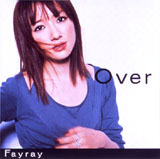
"Over" is Fayray's 10th single and first on new record label, avex trax. It was released on October 11, 2001 and peaked at #18. The song was used in a commercial for Kanebo's "KATE spicy eyes" cosmetics line and also served as ending theme for the TV Tokyo program "Lon-Mu London Ongakukan". The coupling is a cover of Divinyls's "I Touch Myself".

"Remember" is Fayray's 11th single. It was released on February 20, 2002 and peaked at #52. It was used as the image song for the TV program "20th Anniversary 2002 Yokohama Kokusai Shoujo Ekiden". The coupling is a cover of Daryl Hall & John Oates's "Private Eyes".
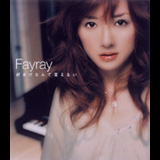
"Suki da Nante Ienai" is Fayray's 14th single and last on avex trax. It was released on January 29, 2003, and peaked on the Oricon chart at #19. The song was used as the theme song for the Yomiuri TV/Nippon TV series drama "Message Kotoba ga, Uragitte Iku". The coupling is a cover of Janis Ian's "Love Is Blind".
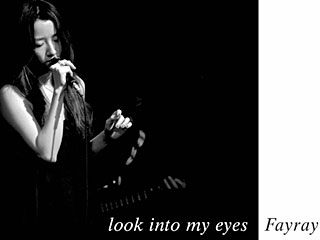
"Look into My Eyes" is Fayray's 16th single. It was released, just a month after "Negai", on March 17, 2004 and peaked at #35. The song was used as the opening theme for the Yomiuri TV/Nippon TV series drama "Ranpo R" for which she also sang the theme song. The coupling is a cover of Carole Bayer Sager's "Don't Cry Out Loud".
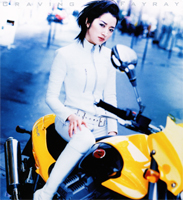
Craving is Japanese singer songwriter Fayray's first studio album, released on May 26, 1999. The album was produced by Daisuke Asakura.
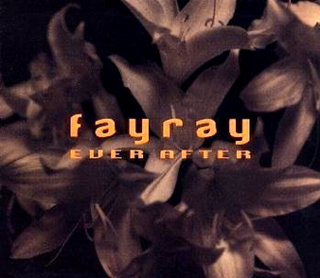
Ever After is Japanese singer songwriter Fayray's second studio and first self-produced album. The album was released on September 6, 2000.

Genuine is Japanese singer songwriter Fayray's third studio album and last under the Antinos Records label. The album was released on July 18, 2001.
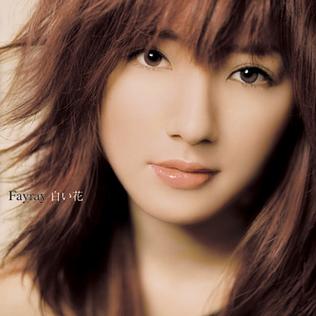
Shiroi Hana is Japanese singer songwriter Fayray's fourth studio album and sole under the Avex Trax label. The album was released on February 19, 2003. "tears" was used as insert song in the Yomiuri TV/Nippon TV series drama "Message Kotoba ga, Uragitte Iku" The Final Episode.

Hourglass is Japanese singer songwriter Fayray's fifth studio album and first under the R and C label. The album was released on October 27, 2004. "Saisho de Saigo no Koi" served as image song for the movie anime "Mind Game"."feel" used as insert song in the Kansai TV/Fuji TV drama "At Home Dad Special" as well as the ending theme for the Yomiuri TV/Nippon TV series program "Afurica no Tume".
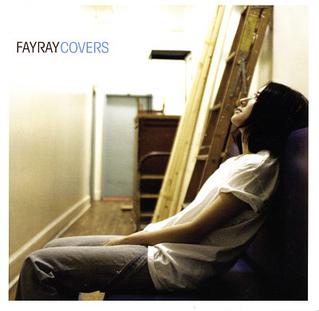
Covers is Japanese singer songwriter Fayray's sixth studio album and her only cover album, released June 8, 2005.

The discography for Japanese pop-rock duo Puffy AmiYumi consists of 14 studio albums, 8 compilation albums, 2 remix albums, 12 video albums, and 41 singles. Their first single, "Asia no Junshin", became an instant hit in Japan where it sold more than a million records and help to catapult the group. Jet-CD is their most successful album, "Kore ga watashi no ikiru michi" is their most successful single, having sold more than 1.5 million copies only in Japan. They have sold more than 15 million records worldwide.
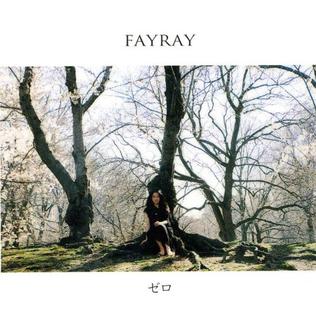
"Zero" is Fayray's 21st single. It was released on July 11, 2007. The song was used as the theme song for the TBS TV Soap opera My Fair Boy. The coupling is a cover of Marvin Gaye's "Forever".
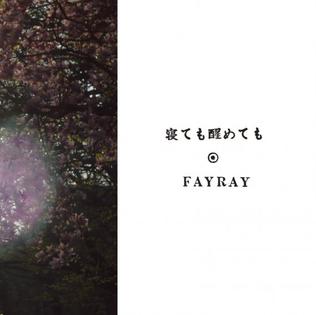
Nete mo Samete mo is Japanese singer songwriter Fayray's eighth studio album and first in 3 years. The album was released January 14, 2009.
Hideaki Tokunaga is a Japanese pop singer-songwriter and actor.
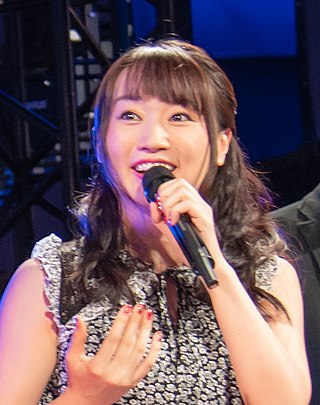
The discography of the voice actress and J-pop singer Nana Mizuki consists of 13 studio albums, 3 compilation albums, 42 singles, 24 video releases, over 60 official music videos, and over 100 other appearances. The first release with Mizuki as a singer was the "Girl's Age" image song single in 1998 for the fictional character Chisato Kadokura from the NOëL video game series. Mizuki would not release her debut single "Omoi" until 2000, which was followed by two more singles and her debut album Supersonic Girl in 2001. Supersonic Girl was Mizuki's first release to chart on the Japanese Oricon albums chart, peaking at No. 60. Mizuki released one album a year for the next three years, starting with Magic Attraction (2002), followed by Dream Skipper (2003), and Alive & Kicking (2004). "Innocent Starter" (2004), one of two singles from Alive & Kicking, was her first single to reach the top 10 Oricon singles chart, peaking at No. 9.
Mayo Okamoto is a Japanese pop singer and songwriter. Her 1995 debut single "Tomorrow" peaked at number 1 on the Oricon weekly single charts. She released her greatest hits album Rise 1 in 2000. The album topped the Oricon weekly album charts.
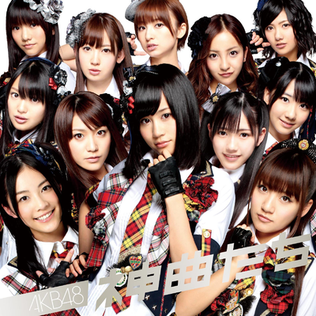
Kamikyokutachi is the second compilation album by the Japanese idol group AKB48. It was released in Japan on April 7, 2010, and contains 16 songs, 14 of which had been previously released as singles. The album topped the weekly Oricon Albums Chart.
References
- ↑ "FAYRAY-ORICON STYLE ミュージック". Oricon (in Japanese). Retrieved 19 April 2010.
- 1 2 3 4 5 6 7 8 "Fayrayがクリムゾンのムーンチャイルドをカバー" (in Japanese). Archived from the original on 23 July 2011. Retrieved 19 April 2010.